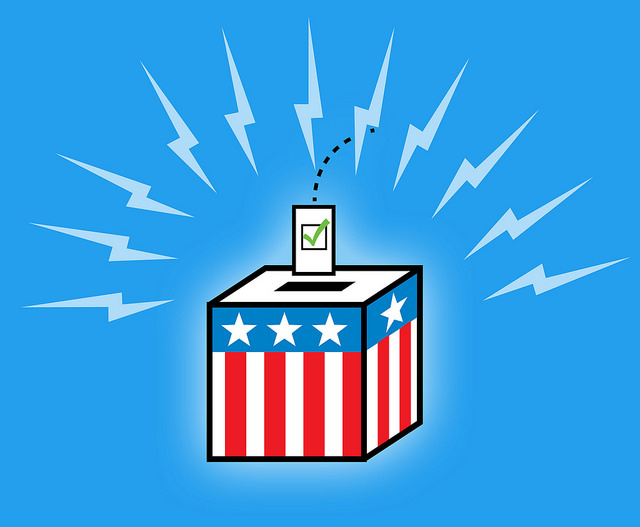The sensationalism of the Presidential election has become nearly impossible to escape. What happens when you manage to claw your way out from the throes of accusations of sexual assault, vulgar behavior, and dishonesty released upon us daily by one of our Presidential candidates? What remains?
For many, the Supreme Court is the single most important federal policy issue of the 2016 election. In fact, that issue has been cited as the reason why the Trump supporters in my life continue to support him. After the death of Antonin Scalia and the subsequent refusal of a Republican senate to schedule a hearing for President Obama’s court nominee, the next President will nominate at least one justice. This year alone, the Supreme Court heard pivotal cases carving the way forward in healthcare, affirmative action, reproductive rights, labor rights, immigration, and climate change. If Hillary Clinton becomes our next President, she could realize the first liberal court since the 1960s.
This election is also pivotal for the courts in North Carolina. There are six seats on North Carolina’s state-level courts up for election this coming November: one seat on the state Supreme Court and five on the intermediate appellate North Carolina Court of Appeals. This year’s election could swing the partisan balance on the North Carolina Supreme Court to the progressive side. Four of our current seven Supreme Court justices are affiliated with more conservative political leanings.
How important is that in a revered profession that takes an oath to serve the law and hold themselves above partisan leanings? Well, apparently it depends on the Justice.
According to some, sitting NC Supreme Court Justice Edmunds has all but shed the pretense of impartiality. Though judicial elections in North Carolina are nonpartisan, candidates declare their party affiliations upon filing. Edmunds has sided twice with a conservative majority to allow the continued use of racially-motivated redrawing of legislative districts. The gerrymandering effectively dilutes the power of black voters by isolating them into fewer districts. The case was remanded to North Carolina’s Supreme Court, and again upheld by a conservative majority including Justice Edmunds, when the U.S. Supreme Court ruled racially gerrymandered maps from Alabama unconstitutional. The court effectively decided to ignore the precedent set by the U.S. Supreme Court.
The General Assembly was so pleased with his performance that they attempted to alter voting laws to retain him in his seat for a third term via a retention election. Earlier this year, Justice Edmunds was to be the first justice to face re-election via a retention vote. Retention votes allow for “Yes” and “No” votes to either retain or dismiss an incumbent without opponents on the ballot. Even if he were to be voted out, that would have left Governor McCrory to nominate another justice, retaining a conservative seat no matter what the outcome. The law was ruled unconstitutional in March. Though Justice Edmunds operated within his legal right to choose a retention election, for many, the episode demonstrates how politicized the courts have become – and judge him for having chosen to be party to it.
This November, seek out justices that at least whisper when revealing political leanings. Let’s restore a sense of impartiality to the courts and have one less thing to sigh and shake our heads about next year.
You can learn about the district and state judicial elections in your area and read candidates’ official statements on a >> guide released by the State Board of Elections .


There are no comments
Add yours